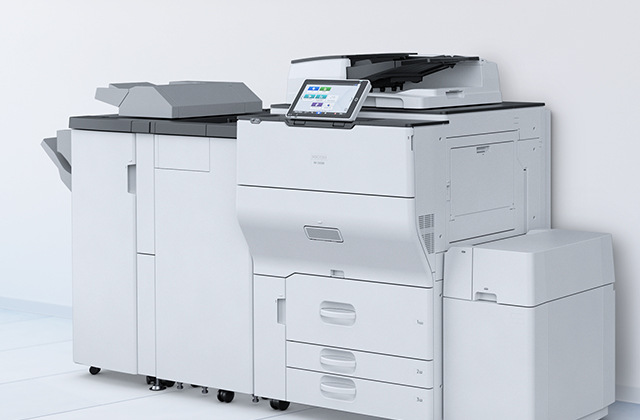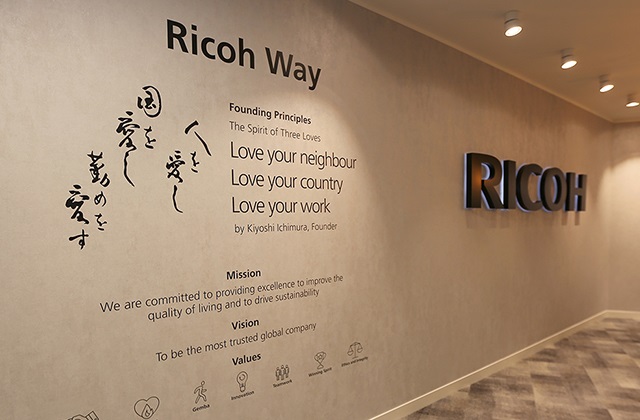Digital transformation and the power of scanning
By Donovan Visser, Digital Solutions Specialist, Ricoh South Africa
South African enterprises are facing a growing imperative to adapt and embrace digital technologies in order to remain competitive. One of the key areas of transformation is the transition from traditional paper-based processes to a more streamlined and efficient digital workflow.
One of the most significant impacts of digital transformation in the country has been the reduction in paper usage. According to World Bank indicators, in 2022, the average South African office worker consumed 10.4 kilograms of paper, down from 12.2 kilograms in 2021. This is a trend that is expected to continue as businesses move to more digital processes.
This shift, often referred to as "paperless" or "less-paper" initiatives, is driven by a multitude of factors, including environmental concerns, cost considerations, and the need for enhanced productivity and agility.
According to the latest Quocirca Research Report, 42% of organisations and moving to a less-paper environment. What is more interesting is that a further 45% are putting in place targets and KPI’s to move their processes away from paper-based processes.
The paper challenge
Paper has long been a mainstay in business operations, providing a familiar and convenient medium for document storage, communication, and record-keeping. However, the reliance on paper also presents several challenges that can hinder an organisation's efficiency and growth.
Paper documents require significant physical space for storage, leading to cluttered offices and increased costs for document management. Manual retrieval of paper documents can be time-consuming and error-prone, especially when dealing with large volumes of data.
Manually transcribing data from paper documents into electronic systems is also a labour-intensive and error-prone process. Human errors can lead to inaccurate information, which can have serious consequences for financial transactions, legal compliance, and other critical business functions.
Moreover, organisations are subject to various legal and compliance requirements that necessitate the proper storage and preservation of paper documents. Maintaining a controlled environment for long-term document storage can be costly and challenging.
The power of scanning
By adopting scanning technology and embracing a digital workflow, South African enterprises can reap a multitude of benefits that enhance their overall efficiency, productivity, and competitiveness. Some of the main advantages of adopting an enterprise-wide scanning strategy include:
- Reduced storage requirements: digitising paper documents into electronic format significantly reduces the physical space required for storage. Electronic documents can be stored securely on digital platforms, eliminating the need for vast filing cabinets and document warehouses.
- Improved retrieval and access: electronic documents are easily searchable and accessible, allowing for quick retrieval and sharing among authorised personnel. This streamlined access to information can significantly improve decision-making processes and collaboration across departments.
- Enhanced data accuracy: scanning technology accurately converts paper documents into electronic formats, eliminating the errors associated with manual data entry. This improves the reliability of data, reducing the risk of financial errors, legal non-compliance, and other operational disruptions.
- Reduced costs: the transition to a digital workflow can lead to significant cost savings in various areas, including storage expenses, paper consumption, printing costs, and labour costs associated with manual document handling.
- Enhanced productivity: by eliminating the time-consuming tasks of paper handling, scanning enables employees to focus on more value-creating activities, boosting overall productivity and efficiency.
- Improved collaboration: digital documents can be easily shared and collaborated on, facilitating real-time communication and teamwork across departments and geographical locations.
- Environmental sustainability: reducing reliance on paper contributes to a more sustainable business practice, minimising the environmental impact of office operations.
According to a Forrester report commissioned by Adobe, 72% of business are now deploying scanners into their environment and a further 20% will have undergone this transformation in the next two years. This has real-world implications for every facet of enterprise, including:
- Accounts payable: in the accounts payable department, scanning invoices and purchase orders can streamline the payment process, reducing manual data entry errors and improving turnaround times.
- Customer service: by scanning customer documents, customer service representatives can quickly access relevant information, enabling them to provide prompt and efficient support.
- Human resources: scanning employee records, contracts, and other HR-related documents can improve record management, streamline onboarding processes, and facilitate compliance with labour regulations.
The future of scanning
As digital transformation continues to reshape the business landscape, scanning technology is poised to play an increasingly critical role in South African enterprises.
With advancements in artificial intelligence, machine learning, and robotic process automation, scanning solutions are becoming more intelligent and versatile, enabling organisations to automate complex tasks, extract valuable insights from scanned data, and further enhance their operational efficiency.
By reducing paper and storage requirements, enterprise processes become leaner, and cost cutting and productivity efficiency will naturally follow. Optimisation through scanning opens a gateway for a new way of thinking, leading the change at work, and implementing a cultural shift in how efficiently we do business.
Adopting modern scanning technology and the transition to an automated digital workflow represent a strategic imperative for South African companies looking to enhance their competitiveness, productivity, and sustainability in the modern business environment.
Media enquiries: Simone John, Ricoh Southern Africa
Contact details: (011) 049-2003, simone.john@ricoh.co.za
Issued by: Michelle Oelschig, Scarlet Letter
Contact details: 083-636-1766, michelle@scarletletter.co.za
| About Ricoh |
Ricoh is a leading provider of integrated digital services and print and imaging solutions designed to support digital transformation of workplaces, workspaces and optimize business performance.
Headquartered in Tokyo, Ricoh’s global operation reaches customers in approximately 200 countries and regions, supported by cultivated knowledge, technologies, and organizational capabilities nurtured over its 85-year history. In the financial year ended March 2023, Ricoh Group had worldwide sales of 2,134 billion yen (approx. 16.0 billion USD).
It is Ricoh’s mission and vision to empower individuals to find Fulfillment through Work by understanding and transforming how people work so we can unleash their potential and creativity to realize a sustainable future.
For further information, please visit www.ricoh.com
Contacts:
Ricoh Europe.
media@ricoh-europe.com












